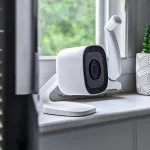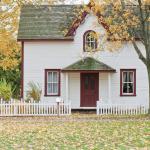Boost your home security with a home safe
Home security is a primary concern for any renter or homeowner: you want to feel safe and secure in your space, whatever that space might look like. And while there are many ways to increase the security of your home, purchasing a home safe is a quick, easy and accessible solution that’s often overlooked.
In this blog post we’ll run through why you need a home safe, their key benefits, and how you can choose a model that fits best with your needs.
Why you need a home safe
There are many reasons to invest in a home safe: not only do they offer protection from theft, they also protect your valuables in the case of a house fire or flood. With this combination of theft, fire and water protection, a home safe offers multiple layers of peace of mind.
Home safes are also versatile, making it possible to find one well suited to almost any space:
- Size: home safes range from small safes that tuck into the back of a wardrobe to very large models, letting you store all manner of valuables
- Mounting: home safes can be mounted on walls, floors, or even under the floor - this latter option offering a level of concealment that reduces the risk of it being found
- Lock type: from key locks and combination locks to digital and biometric ones, modern safes have a range of locking mechanisms - each with its own benefits
- Material: various sturdy materials are used in the construction of safes, with differing thicknesses offering scaling levels of security
- Damage resistance: some safes are tested to survive falls from great heights, offering protection if they fall through a damaged floor or similar
- Alarms and alerts: some models have audible alarms or can notify their owner through an app if unauthorised access is attempted
- Portability: small safes can be moved easily between locations, great if you want to move your valuables
What can you store in a home safe?
Modern safes are designed to protect all manner of valuables, from traditional items like cash, jewellery and documents through to hard drives, SD cards and other digital media. Here are some items that homeowners commonly store in safes:
- Passports: given their importance and the cost of replacing them, storing passports in a secure location is a smart move
- Deeds: property ownership deeds are also commonly stored in safes due to their value and the administrative effort required to replace them if lost or damaged
- Other important documents: documents are small and easy to store in a safe
- Jewellery and valuables: these items are a prime target for thieves as they have a high resale value, so many homeowners choose to keep them locked away
- Cash: if you keep cash at home, a safe offers great piece of mind that it won’t get stolen or lost
- Sentimental items: it’s not just items with high cash value: safes are great for items with personal value
If you’re struggling to think what you’d store in your safe, have a think about what would cause most distress or upset if you were to be burgled - these items are a great place to start!
Key benefits of using a home safe
To summarise, here are the key benefits of using a home safe:
- Extra peace of mind: a safe doesn’t negate other home security improvements such as burglar alarms and rated locks, but it does offer another layer of peace of mind
- A great deterrent: if an opportunistic thief enters your home and sees a safe, they’re more likely to change their mind and make a quick exit
- Versatility: there are so many models available that you’re sure to find one that aligns perfectly with your needs
- Convenience: modern safes are easy to use, with simple locking mechanisms and quality materials
Choosing a safe that aligns with your needs
To find the safe that works best for you, we recommend taking stock of your current home security configuration, the valuables you’d like to keep safe, and the risk of fire and flood. Many homeowners looking for their first safe choose something slightly larger than the combined size of their current valuables, giving them the option to store more over time without having to buy a new safe.
If you live in an area liable to flooding and will have the safe on the ground floor, choosing a water resistant model is highly advised. And if you have particular concerns about your home security, choosing a higher rated model or an underfloor model can be a good way to address these.
Safe and sound!
We hope this guide has been a useful primer to home safes. For a renter or homeowner looking for their first home safe, the best bet is to talk to a home safes supplier about your needs and concerns - they’ll help you to refine your understanding of what’s required, and they’ll suggest some models that would be a good fit.
More to Read:
Previous Posts:




